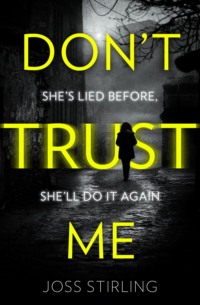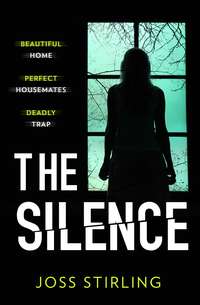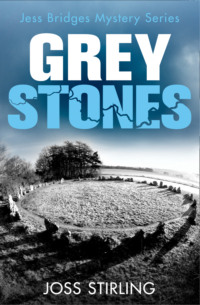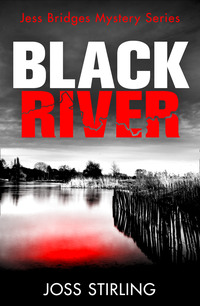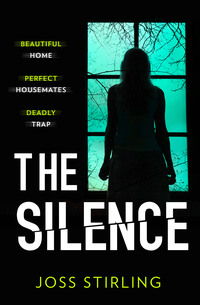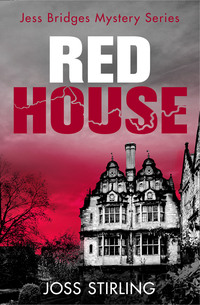
The author made the usual adjustment that people went through when they met Michael. Good-looking guy with glossy auburn hair, seated in a wheelchair, thanks to a close brush with death at the hands of a crazed killer. And what did she see when she looked at me? Smallish blonde bombshell attempting to channel Marilyn Monroe? Only in my most generous dreams.
‘I’m so pleased to meet you,’ she said. ‘I’ve been wanting to meet you ever since Petra mentioned you both. And you must be Jessica Bridges?’
‘Call me Jess.’ I shook her hand.
Disconcertingly, she turned her attention to me, rather than the literary star. ‘Petra said you live in Oxford and look for missing persons, Jess? I mean, that’s what you do for a living?’
‘For my sins.’ Petra had been introducing me like this to her colleagues because saying I was Michael’s definitely-not-his-partner was harder to explain.
‘I’m so glad.’
Odd. I glanced at Michael.
‘I’m afraid Jessica isn’t here to work, Tanglewood,’ said Michael.
I wished I were in the right spot to elbow him. ‘Not that I ever turn work away.’ My bottom line wouldn’t allow that.
‘Good. Great, in fact.’ Tanglewood scrunched up the programme she’d been given, then smoothed it out when she noticed. ‘Can we talk after the ceremony?’
‘Of course. You’ve lost someone and you want me to find them?’ I asked.
‘Oh no. I know exactly where they are.’
I wondered what part of ‘I look for missing persons’ she wasn’t getting. ‘Are you sure you need me then?’
‘Yes, because she’s lost herself and I’m hoping you can help her find her way back. Before it’s too late.’ She looked quickly over at Petra and the woman who I assumed was Tanglewood’s editor. They were ordering generously from the bar for themselves. Don’t you just love expense accounts? ‘I’m sorry. It’s complicated. I’ll explain later.’
My mind was now spinning. ‘Just one quick question: who is this person to you?’
She clasped her hands to her neck in consternation. ‘I should’ve started with that. Sorry. I’m not thinking straight. It’s my daughter. Lisette.’
Chapter 3
Leo
Two members of the search team had found a bundle of material in the hedgerow. Lifting it out carefully, they unrolled it on a plastic sheet spread on the path. It resolved itself into a green cloak and a pair of leather sandals – sturdy Jesus creepers rather than flimsy fashion ones. The female officer held them up in gloved hands.
‘No size marked but I’m a six. These are around a four or a five, sir. A woman’s shoe – or a child’s.’
About the same size as the victim’s feet then.
‘Good work, Diana. Bag them up for forensics. Tag for blood and DNA.’ Leo tried to imagine how they might have come to be there. One possibility was that the girl put them in the hedge herself, tucked out of the way for collection after whatever she expected to happen on the hill concluded. Surely she hadn’t expected to die if she walked in? Those who killed her might not even know where she’d left her things. She could have walked the rest of the way on the short downland grass, which would explain why her feet were clean and unmarked. Alternatively, if they went with the theory that her killer dumped her stuff here, that begged the question why. Why not dispose of it entirely?
He looked down the track to the southwest. If this was a ceremonial killing, then that fact told him that they were going to have to expand the search.
‘Harry, are you done with the bins?’ Leo called.
‘Yes. All bagged and tagged.’ His sergeant stubbed out his taunting cigarette.
‘Take two officers and head over to Wayland’s Smithy by car. Close it off and question anyone you find there. I’ll join you shortly. I’ll take a team and walk there.’
‘You don’t want me on a bigger team on the search of the path?’ Harry was always so ready to second guess.
‘No, our priority is to stop members of the public disturbing any evidence before we have a chance to examine the barrow.’
‘You really think there are two sites involved in this?’ The DS beckoned a couple of searchers to join him.
Just do your job, Harry, thought Leo. ‘It has to be a strong possibility considering the stage-setting of a sacrifice and a second famous prehistoric site so close. I’ll contact you if I find anything on the path.’
Leo took with him the two officers who’d found the bundle – he had a much easier rhythm with them. They fanned out across the path. A well-used route, there was little to be made from the footprints in the churned earth, but Leo couldn’t rule out more traces of the victim in the bushes and long grass along the fence line. They had to look. On this quick survey, there was nothing to find apart from a depressing number of cans and plastic rubbish. A follow-up team would collect it for examination – one slight good thing to come out of this.
His phone buzzed.
‘Good call, Leo,’ said Harry. ‘There are signs all over the barrow of recent activity. Some kind of religious ceremony by the looks of things. I can see traces of candle wax on the top of the stones, some scratches, and a burnt-out campfire. We’ll need SOCOs to go over it with a fine-tooth comb.’
Thank you, Captain Obvious. ‘I’ll send one of the vans. You didn’t go inside the barrow, did you?’
‘Don’t get your knickers in a twist. Just me and only to check there’re no more victims.’
‘Did you find anything?’
‘No. It’s a hell of a creepy place though. We’ll need lights but the activity looks like it happened by the entrance.’
‘We’ll be with you in a few minutes.’
Leo’s small search team approached the barrow from the northeast, tracing in reverse the path the victim and killer – or was it killers? – might have taken. Leo had been here several times when walking along the Downs. If the White Horse was about a space dedicated to the sky, Wayland’s Smithy was about the earth. A long, low mound, nestled among trees, it was fringed at the southern end by four large standing stones and some smaller ones. Sarsen stones, they were called locally; etymology disputed. It either meant alien, as in ‘Saracen’ stones, or troublesome, from the Anglo-Saxon sar-stan. Leo considered the second more prosaic origin was likely to be correct: the rock that was the bane of any ploughshare. Our ancestors found a use for them and moved them here. The two largest guarded the passageway leading into the barrow, a path almost blocked at two places by shorter sarsens. The doorway itself was a simple construction of two upright stones and one flat stone across the top. He didn’t need a professor of archaeology to tell him what those who constructed the tomb had been thinking. As he looked directly into the dark mouth of the barrow, it felt like a womb. Put another way, this was the view a midwife got when delivering a child. We came from the womb, thought Leo, and the barrow reminds us that we return there to Mother Earth.
The six officers stood in silence before the Wayland’s Smithy entrance, taking in the scene. Detective work was about stopping in order to solve puzzles as much as it was activity. They knew that Leo needed quiet to think. In the hush, he noticed a strange ringing in the air and wondered for a moment if his mind was playing tricks.
‘Can you hear that?’ he asked his team.
Harry smirked. ‘Yeah. Put the wind up us when we first heard it. Kyle tracked it down to metal tags on the trees.’
The young officer blushed as he spoke, cursed as he was with the ruddy cheeks of the fair-skinned. ‘Yes, sir. I think they’re put there by the landowner to mark the beeches for his records.’
But any neopagan rite would have loved the special effects. Leo imagined hearing that at night in the candlelight.
‘Are you thinking they started here with whatever it was they were doing, then headed to the horse?’ asked Harry.
‘If these signs are connected, then yes.’ Leo could see them in his mind’s eye: a procession, probably lit by flaming torches, excitement. How many had known that a real death was about to happen? Would someone crack and tell them what had taken place here? Or had that atrocity been done by a smaller, select number?
‘If they were poncing about here, doing their satanic ritual or whatever, it means we’re looking for more than one person involved in the killing.’
‘I agree, but what makes you think that?’
Harry waved to the stones. ‘There were enough candles here to light a cathedral. It’s no laughing matter trying to keep a candle alight outdoors. Tried that for my mother last August – eighty fucking candles on her birthday cake. By the time you get to the last one, the first will have long gone out.’
Thanks to Harry, Leo could see that part now. Acolytes tending the flames while the senior figures in this drama enacted their parts in the centre by the stones. ‘Good point.’
‘Does it look like a c**t to you?’ Harry used a crude word, knowing Leo would have to pull him up on it. It was a war of attrition between them.
‘We’re on duty, Harry.’
‘You don’t mind Old Harry’s foul language, do you, Liv?’ he asked, picking out one of the officers he’d brought with him – the youngest.
She stood to attention, hands behind her back. ‘Actually, I do find it offensive, sir.’
That irritated Harry enough that he muttered, ‘A cult killing involving a c**t, sorry womblike tomb? The press are just going to love this, no matter what you snowflakes think.’
‘That’s enough, Harry. That language has no place in the Thames Valley Police.’ Leo turned to the team. ‘And they can dress it up how they like, light as many candles, chant as many prayers, but this is still murder. A girl has lost her life. It’s our task to get her justice. Let’s do our job.’
Chapter 4
Jess
I sat between Michael and Petra in the Frankfurt Fair auditorium in which the presentation was taking place. This was probably the closest I’d ever come to an Oscar ceremony so I was determined to enjoy it. Sorry to report that the goodie bags weren’t up to Hollywood standard: mainly proof copies of books the sponsors wanted to flog and a few bookmarks for things I’d never read. Here was I hoping for at least chocolate.
However, the organisers had spiced up what could’ve been a tedious hour with presentations on each of the shortlisted books by students from Goethe University. I was amused how each group had interpreted their brief. Michael’s book got a tense drama, a reenactment of one of the interviews in his chapter called ‘The Psychopath Among Us’. All well and good. The response in the room was electric and my hopes rose. They were then dashed as the book on the pelicans got a nature documentary. Someone, presumably the deep-pocketed publisher, had paid for the team to fly to Seattle and film in Puget Sound. It was a frighteningly professional job from the media students. The AI doomsday book had attracted the programmers to come up with a computer-generated piece of music in the style of Beethoven, which the makers called ‘Ode to Despair’. Very gloomy and Germanic; it didn’t win many fans, even if it was a glimpse of our future as slaves of the machine. But my favourite was what they had done for Tanglewood’s book; this had been handed over to the students on the Master of Arts programme and they’d come up with an interpretive dance. I kid you not. Five young people – three men and two women, all in black – dancing to a track that sounded like the weird offspring of Enya and Kanye. The performance involved a ram’s skull, a wicker man, and something obscure to do with stones. I guessed I’d have to read the book to decode that part. It was all very sexual. As they exited to bemused applause, I decided I would totally vote for that book if I weren’t already biased towards Michael’s.
Throughout the presentations, Michael looked pained at what he probably considered a vulgar bid for entertainment.
‘Be grateful you didn’t get the interpretive dance,’ I murmured.
‘Oh, I am. I definitely am,’ he said fervently.
And now the big moment arrived. The trophy sat on a pedestal on the stage: a glass star the size of a dinner plate. Where would anyone put that? Michael had been promised a place in the top two so he could afford to relax a little until the big announcement. First to be presented were the books in the judges’ ‘Highly Commended’ category. These were awarded to Pagan’s Progress and You Are F*cked. The winners didn’t get to make a speech. They passed quickly across the stage to receive their certificate, cheque, and little glass star trophy. Applause was polite and barely covered Tanglewood’s return to her seat. I gave her a commiserating look, then reached over and squeezed Michael’s hand.
‘And now, the runner-up in the Frankfurt Non-Fiction Book of the Year is …’ The announcer had seen too many TV programmes where they spin out this moment. She took her time opening the envelope. ‘Type M for Murder.’
Oh dear. I leant over and hugged Michael.
‘Fucking pelicans,’ he muttered in my ear before pulling away and wheeling himself onto the stage. Over to our right, the publishing team for Last of the Pelicans was already celebrating, attracting much of the attention that should have been given to Michael. I stood up and cheered Michael, then added a whistle to draw people back to his progress to the stage. Petra joined me and this shamed those around us to follow suit. At least Michael received his award to a standing ovation. His winner’s speech wouldn’t be needed though. When he got back to us, medium-sized star trophy on his lap, the pelican guys were already bounding over to pick up their prize as a montage of pelican shots flew on the screen behind them.
‘It’s a zeitgeist thing,’ said Petra in commiseration as the applause echoed around the auditorium. ‘It’s the environment’s moment, what with Greta Thunberg and the fact that we’re all going to die if we don’t stop climate change.’
‘Well, that certainly puts things in sunny perspective, Petra,’ I said cheerily. ‘So, let me guess, you’re a glass-half-full kind of person?’
‘It’s still very good, Michael. And we’re still in with a good chance with the Guardian Readers’ Book of the Year,’ said Petra, wisely ignoring my sarcasm. ‘Keep up the tweeting.’
Michael grimaced. It was exhausting, as he had already told me, finding time to carve out a following for himself in the public arena. He didn’t mind kicking off debates but he hated the ‘vote for me’ aspect of what his publishers wanted him to do. He teased me for my effortless audience of hundreds of thousands for my fake cat lover Instagram account. Well, it wasn’t exactly fake as I did like cats, but I kept it so I could follow back other people whom I was pursuing for professional reasons. They were unlikely to suspect CuteCat4567 of anything other than a dubious obsession with hilarious cat antics. Thanks to regular uploads to my account of new videos, I seemed to have become peculiarly popular … from which I deduced that the internet wanted more kittens, and not politicians, doing funny stuff.
We were both in dire need of a drink by the time the pelican people had done their lap of honour and thanked everyone including their primary school teachers and Susie from the post room. (I might be exaggerating but when have you ever found a list of thanks the least bit interesting when you know none of the people mentioned?) We spilled out into the reception. I cornered an unfortunate German teenager who bore a tray of drinks and took the whole thing from her. She was too shocked to protest. Michael parked up in a corner, I set the tray before us, and we began to make our way through the contents. Petra had vanished. I hoped this wasn’t a sign of waning interest from Michael’s publisher?
‘Jessica, have I ever told you how I like your style?’ said Michael, selecting a beer from the array. ‘No one else would have the guts to do this even though it’s what they all want to do.’
‘It’s my signature move.’ I shifted a crate of leaflets over so I could sit down. The pelican guys didn’t need their material advertising their wonderful lives flying round the world to lament the loss of habitat to rising CO2 levels. ‘Look at all the trees they’re killing,’ I said, planting my butt on their collection.
As expected, this invitation to knock the winners cheered Michael up. We agreed that the book should never have been nominated. A European book award given to one about America? Come on. What were they like on the judging panel?
‘Kickbacks,’ I declared. ‘I bet the publisher bribed them.’
Michael knew I was only joking. ‘With what?’
‘Cash or blow jobs. Maybe both?’
He spluttered into his beer.
‘Did that go down the wrong way? I’ve heard that can be a problem.’ I underlined the innuendo with eyebrow wiggling.
‘I don’t remember you ever having that problem.’
Now it was my turn to cough on my gin and tonic.
Well-oiled with booze, we were sniggering like thirteen-year-olds when Tanglewood found us. I offered her a selection from the diminished drinks on our tray. She grabbed an elderflower cordial. That was fine: neither Michael nor I were going to dilute our alcohol haze with that.
‘Bad luck,’ I said. ‘To both of you. I mean, what did the pelicans do for us, hey? That’s what I want to know.’
‘You should’ve won, Michael,’ Tanglewood said. ‘There’s nothing original in that book, and yours has such an interesting story to tell, something we all need to understand as we grapple with the presence of evil in our lives.’
‘And yours – I thought they did you a disservice handing it over to a dance troupe,’ said Michael, not at all gauging his audience.
‘I loved the dance group!’ I said indignantly. ‘Best bit of the whole evening.’
‘I quite liked them too, once I recovered from the surprise.’ Tanglewood gave me a little smile. ‘My book is about the reinvention of old ideas so it was oddly appropriate.’
‘How do you mean? Sorry, I haven’t read it yet.’
‘I must give you a copy, if you’d like one.’
‘I’d totally like that. But go on about reinvention. I’m just about sober enough to listen.’
‘Being drunk is definitely an old tradition. We find drinking vessels at all the ceremonial sites. My book’s thesis is that modern pagans often latch on to a fragment of an idea that was once embedded in a whole social context. They lift it out and turn it into something that says far more about our time than about anything authentically ancient.’
Most of that went over my head … and that head was spinning. I attempted a summary and raised my glass. ‘So we agree: psychos and pagans are the business, pelicans are pants?’
‘How much have you had to drink, Jess?’ asked Tanglewood.
I pointed to the empties on the tray. ‘Half of those.’
‘She’s had the wine and spirits; I’ve had the beer,’ said Michael. ‘We are going to have one sick Jessica on our hands tomorrow.’
‘So now isn’t a good time?’ asked Tanglewood.
‘Oh God, our conversation!’ I tried to slap myself out of my merry daze. It didn’t work as I somehow missed my aim and sloshed tonic over myself.
Ah, I see what I did wrong: I didn’t put down my glass.
Michael took it out of my hand. ‘Yes, I think you’d be better talking to her tomorrow. But in the afternoon. Are you staying on?’
She shook her head. ‘I’m on the one-thirty to Heathrow.’
‘That’s good because so are we. You can talk to Jessica then. I’ll make sure she’s sober.’
I didn’t make a very good poster girl for my business in this state, as Tanglewood had noted. ‘Is she any good at what she does?’
Michael paused for a moment. ‘Surprisingly, I have to say that she is.’
‘Aw, Michael, you say the sweetest things now you’re no longer such a dick,’ I said, commandeering another tray of drinks.
Chapter 5
Leo
Leo began his enquiries in the valley with the brother of the National Trust warden. Looking him up revealed that the man’s full name and rank was Major Roger Horatio Chamberlain, formerly of the Royal Green Jackets. He appeared in many social postings of the local VIP kind: mayoral banquets, political campaigning (for the Lib Dems, surprisingly), and among the racing fraternity. Leo chose the major first, not just because he was interested in seeing this paragon of courage, but also because the major was the chief landowner in these parts. A quick search run by one of the team revealed that Major Chamberlain owned the manor at Kingston Beauchamp and surrounding fields, though he himself lived in the converted manor stable, closer to the centre of the village. That kind of man – privileged, well-connected, a big fish in his own small pool – was bound to be a pain in the neck. He’d have the Chief Constable on speed dial.
Leo drove into the cobbled yard and parked alongside Major Chamberlain’s Range Rover. More dogs – this time beagles – ran out to greet him. Tails thrashed his trousers like whips. Gauging their interest to be friendly, he scratched heads as he took in Chamberlain’s home. This stable block was built at a time when landowners spent more on the comfort of their horses than they did their own children. Their sons and daughters were sent to spartan public schools; their prized mounts were snugly housed in heated stalls and tended to with zealous care. In the conversion from stable to home, one wing had been kept to show the original wooden divisions, complete with iron mangers and golden horsehead finials to denote the lodgings of the most notable stallions and mares. The other three sides of the courtyard had become a spacious family home. Apart from the lack of a garden, which was a serious drawback, Leo found himself envying the major’s deep pockets that could afford this.
‘Can I help you?’ The superficially friendly question was delivered with icy disdain. The speaker, a woman in her early sixties with ash-blonde hair, a silk Hermès scarf, and quilted jacket, was on her way out if the evidence of the car keys gripped in her hand was anything to go by.
Leo showed her his warrant card. ‘Inspector George, Thames Valley CID. Mrs Chamberlain?’
‘Yes.’
‘Might I have a quick word – and with your husband, if he’s here?’
‘I’ve a coffee morning in Burford.’
Leo stood firm. Such privilege pissed him off, but he was good at not letting his emotions show. He’d had years of practice, most of them before joining the police. ‘Then I won’t take up more time than is absolutely necessary.’
With a toss of her head, she turned on her heel and went back into the house. ‘Roger! Roger! The police are here.’
Leo decided she must’ve meant him to follow her. It was odd that she didn’t seem curious as to why he was calling. Normally that was the first question. Had something happened to a loved one? Had there been an accident or a robbery? Perhaps her brother-in-law had already told them to expect a call from the police?
Inside, the house got even better. Their manners might be lacking but Leo couldn’t fault their taste. They had left the central wing open so that you could still see all the way down what would once have been the tack room and storage space for carriages. The floor was flagstones with a central aisle of herringbone-laid bricks. Arrangements of furniture separated the room into different spaces for sitting, dining, or watching a large flatscreen. Leo noted that the television was tuned to racing, though the sound was off.
He turned to take it all in. Something was missing. Perhaps it was a little too much like an upscale hotel lounge? It didn’t feel lived in, not in the messy sense of a family who was relaxed enough to allow shoes or opened post to lie for a while before being cleared away. This looked like the Chamberlains expected a visit any moment from a photographer to feature it in a glossy magazine.


